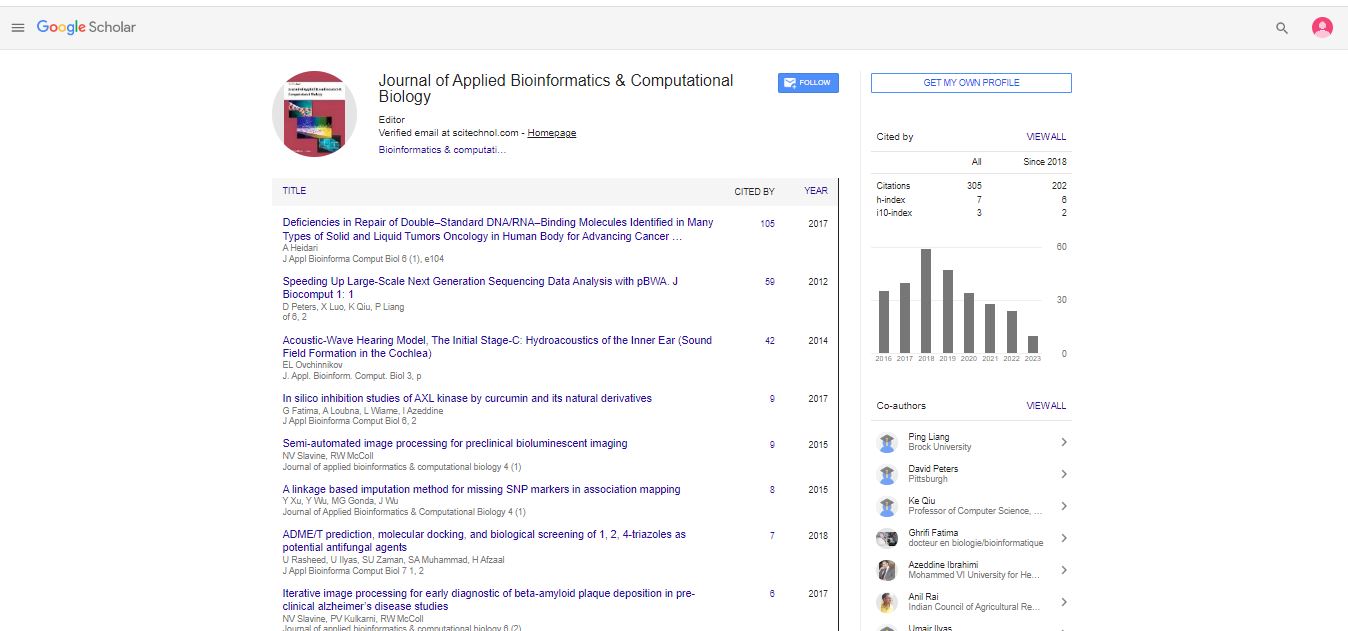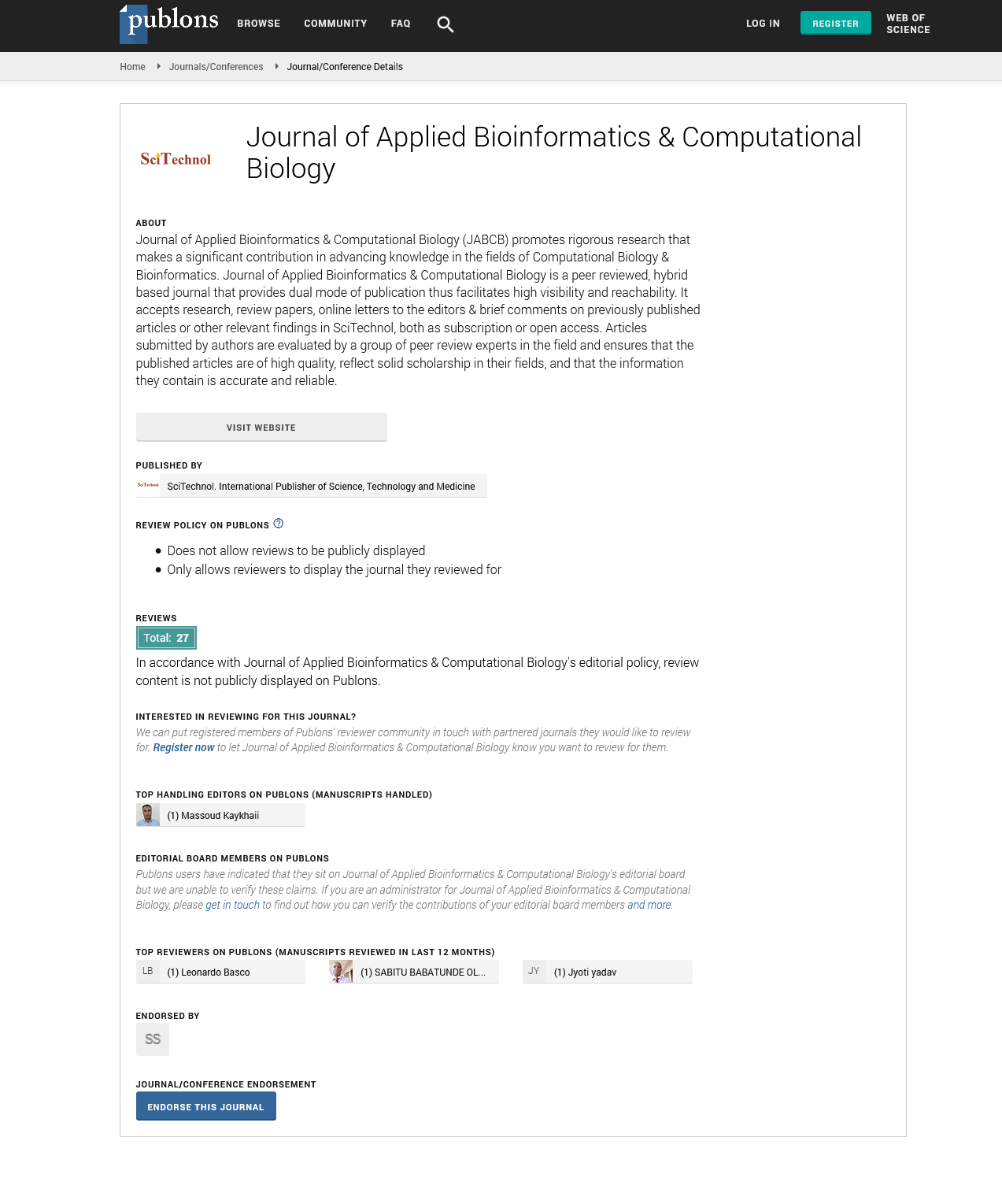MD simulations of estrogen receptors (ER) and docking analysis of DPN analogues reveal insights about subtype-receptor selectivity
Marlet Martinez
Instituto Politecnico National (National Polytechnic Institute), Mexico
: J Appl Bioinforma Comput Biol
Abstract
Estrogen (17-estradiol) is essential for normal growth and differentiation in the mammary gland. In the last three decades previous investigations have revealed that estrogen receptor alpha (ERα) plays a critical role in breast cancer. More recently, observations regarding the widespread expression of ERβ-like proteins in normal and neoplastic mammary tissues have suggested that ERβ is involved in the mentioned pathology. Therefore, design of new drugs both steroidal and nonsteroidal that target ERβ represents a therapeutical promise to treat several diseases. In this work, we have proposed a new set of compounds that target effectively the estrogen receptors, and particularly the ERβ. They were designed based on the chemical structure of the ERβ-selective agonist diarylpropionitrile (DPN), then, these potential ligands were submitted in silico ADMET (absorption, distribution, metabolism, excretion, toxicity), from such analysis we could select the ones that showed better properties and they were used for docking studies on ERα and ERβ, employing snapshots at 0 ns and 100 ns retrieved from Molecular Dynamics (MD) Simulations. MD Simulations of the ligand binding domains (LBDs) of both estrogen receptors revealed important structural information and docking studies of the designed ligands provided useful information regarding the molecular basis in the binding of these ligands, for example, ligands that show polar functional groups, as well as aromatic groups, such as chlorobenzene exhibit higher affinity for ERα, whereas ligands that exhibit dinitrile functional groups, as well as ligands that show dinitrile groups combined with amino protonated groups ensure higher affinity and selectivity for ERβ. Moreover, from our structural results we could decipher structural differences between these nuclear receptors.
Biography
Marlet Martinez has a PhD from Universidad Politecnica de Catalunya, Barcelona and a Postdoc in Structural Bioinformatics from Institut Pasteur, Paris, France. Nowadays, she works at the National Polytechnic Institute (IPN) in Mexico City where she carries out research on Structural Bioinformatics of diverse protein, MD simulations, docking analysis of potential ligands, drug design, among others. She has published about 17 publications in JCR articles, directed about five Master Degree Thesis in Pharmacology and Bioinformatics as well as two PhD theses. She has been invited as lecturer by the Biophysical Society (USA), Congress of International Drug Discovery.
E-mail: marletm8@gmail.com
 Spanish
Spanish  Chinese
Chinese  Russian
Russian  German
German  French
French  Japanese
Japanese  Portuguese
Portuguese  Hindi
Hindi 
